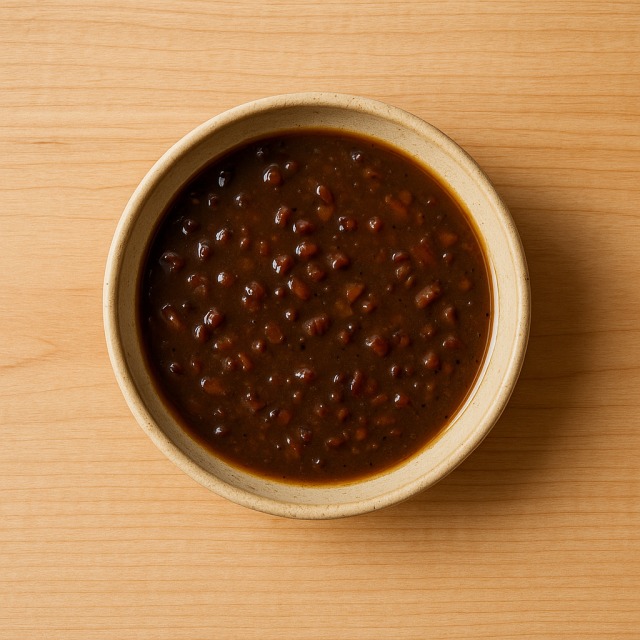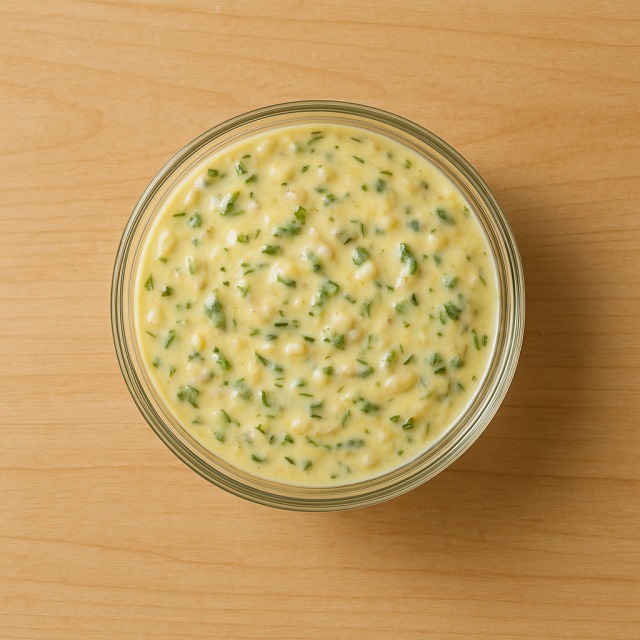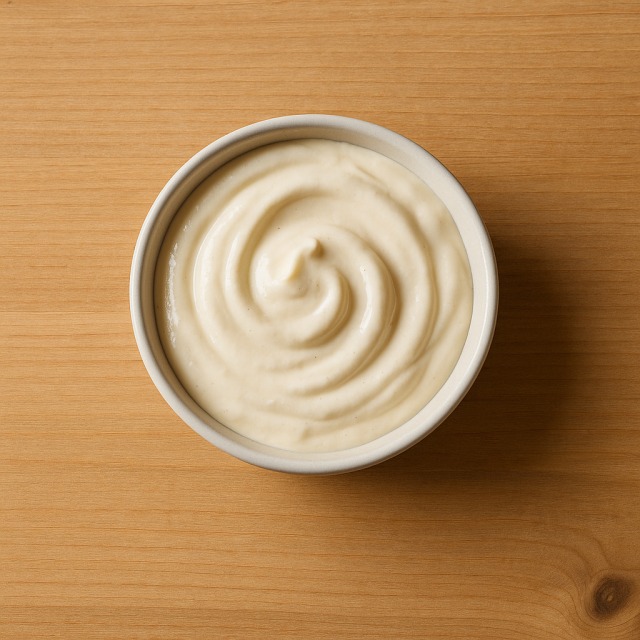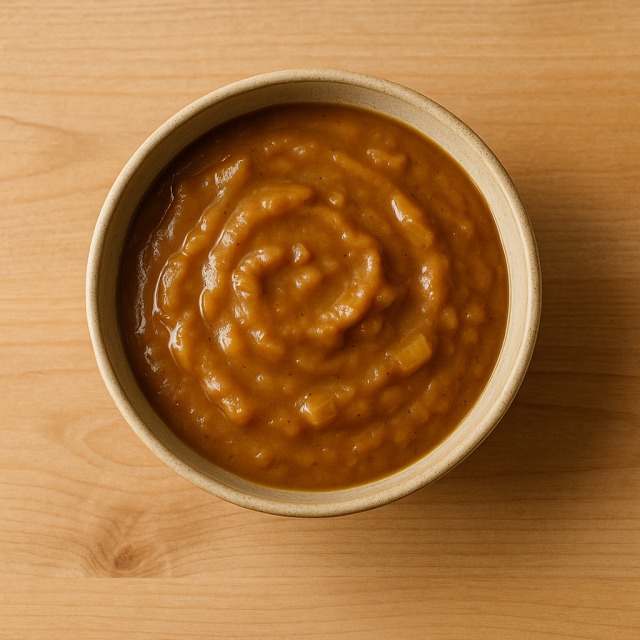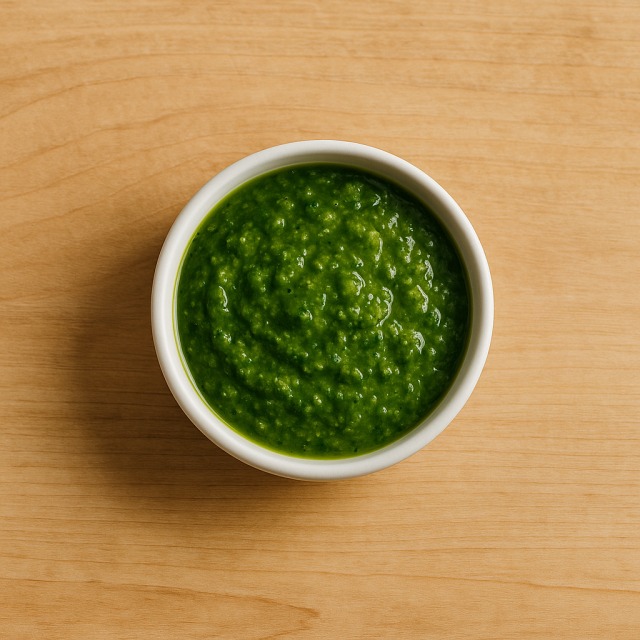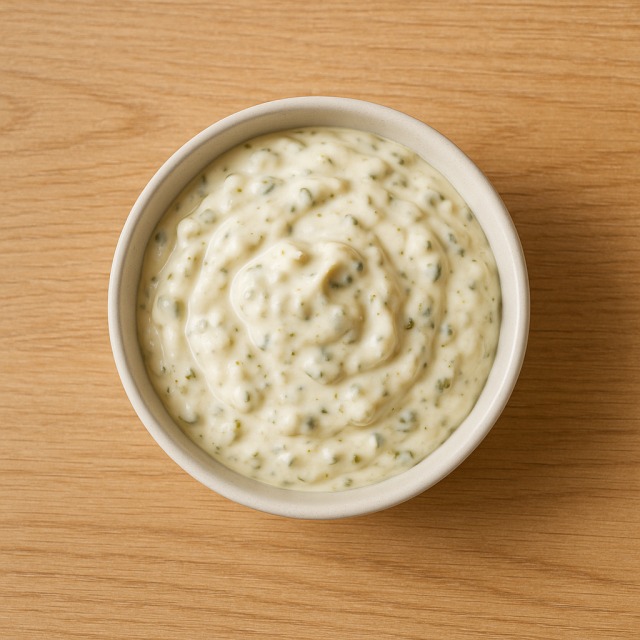Calorie Chart / Seasoning & Sauces / Yogurt sauce
How Many Calories Are in Yogurt sauce?
Calculation of the nutritional value & Recommended Dietary Intake of yogurt sauce
For g and a calorie requirement of kcal
| Calories 8 kcal | Proteins 0.6 g | Lipids 0.2 g | Carbohydrates 0.8 g |
| 0% | 1% | 0% | 0% |
Health benefits of yogurt sauce
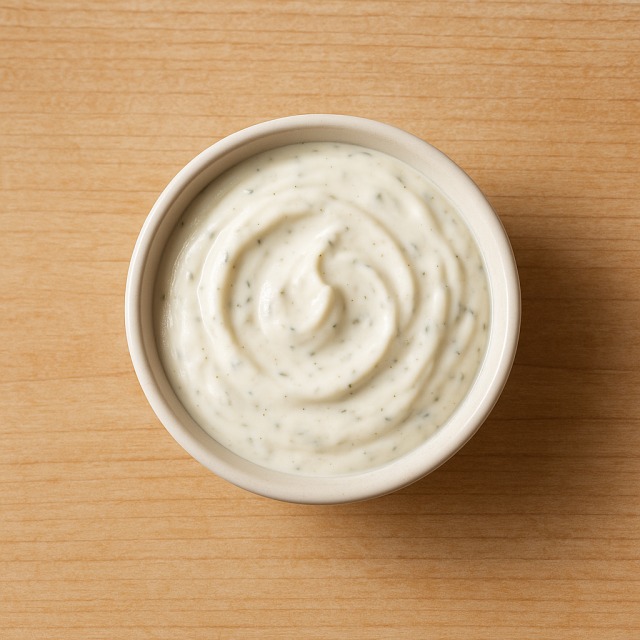
Yogurt sauce - 100g
Calories 50 kcal
Proteins 4 g
Lipids 1.5 g
Carbohydrates 5 g
With only 50 calories per 100 g, yogurt sauce is clearly a low-calorie option, making it interesting for people who count calories at every meal. Despite the modest calories, it provides about 4 g of protein, which helps satiety.
Because it is prepared from fermented milk, yogurt sauce is naturally rich in calcium and vitamin B12; two teaspoons already contribute to bone health and red-blood-cell synthesis without adding many calories. It also supplies small amounts of phosphorus and potassium, and its lactic ferments may support digestive comfort—an asset often mentioned, even if some benefits remain "supposed" in scientific literature.
Its fat content (1.5 g per 100 g) is lower than that of most creamy dressings, so athletes and dieters can control their daily calories more easily. Historically, yogurt-based sauces originated in the eastern Mediterranean; in Ottoman times, cooks paired them with grilled meats to temper spices while keeping calories in check.
In short, yogurt sauce offers flavor, a touch of protein and micronutrients, and very few calories—qualities that justify its place in balanced menus focused on controlling calories.
Tips for incorporating yogurt sauce into a balanced diet
Because yogurt sauce is low in calories, it can replace richer condiments in many dishes. Try serving it with grilled chicken breast and a side of steamed broccoli; you get plenty of protein and fiber while keeping calories moderate. For a light lunch bowl, mix quinoa, diced cucumber, cherry tomatoes, and a spoonful of yogurt sauce—this combination stays below 400 calories.
If you love fish, a dollop on top of baked salmon brings freshness without the calories of Béarnaise. The sauce also works as a dressing for raw vegetables such as carrot sticks, turning a snack of under 100 calories into something more satisfying.
To flavor the sauce without raising calories, add chopped herbs, a squeeze of lemon juice, or a pinch of curry powder. Avoid mixing in oil-packed ingredients if you want to preserve its low-calorie profile. Finally, remember portion control: two tablespoons supply roughly 25 calories, leaving room for nutrient-dense foods on your plate.
Frequently Asked Questions
- How many calories are in yogurt sauce?
- Yogurt sauce provides 50 calories per 100 g.
- Is yogurt sauce good for weight-loss diets?
- Yes. Its 50 calories per 100 g make it far lighter than traditional mayonnaise or Béarnaise sauce, so you can add flavor while keeping daily calories in check.
- How does yogurt sauce compare to mayonnaise in calories?
- Classic mayonnaise exceeds 650 calories per 100 g, whereas yogurt sauce stays at 50 calories, a difference of more than 600 calories.
- Can I use yogurt sauce as a protein boost after sport?
- It supplies 4 g of protein per 100 g. Combine it with lean sources like turkey cutlet to raise total protein without dramatically increasing calories.
- Is yogurt sauce suitable for diabetics?
- With about 5 g of carbohydrates and only 50 calories per 100 g, it fits most diabetic meal plans; still, check the ingredient list for added sugar.
- How long can I store homemade yogurt sauce?
- Refrigerate it in an airtight container and consume within 3 days. This prevents spoilage without the need for preservatives or extra calories.
Similar foods
Information provided by Calorie Menu may contain inaccuracies or errors. It cannot, under any circumstances, substitute medical advice or medication.
